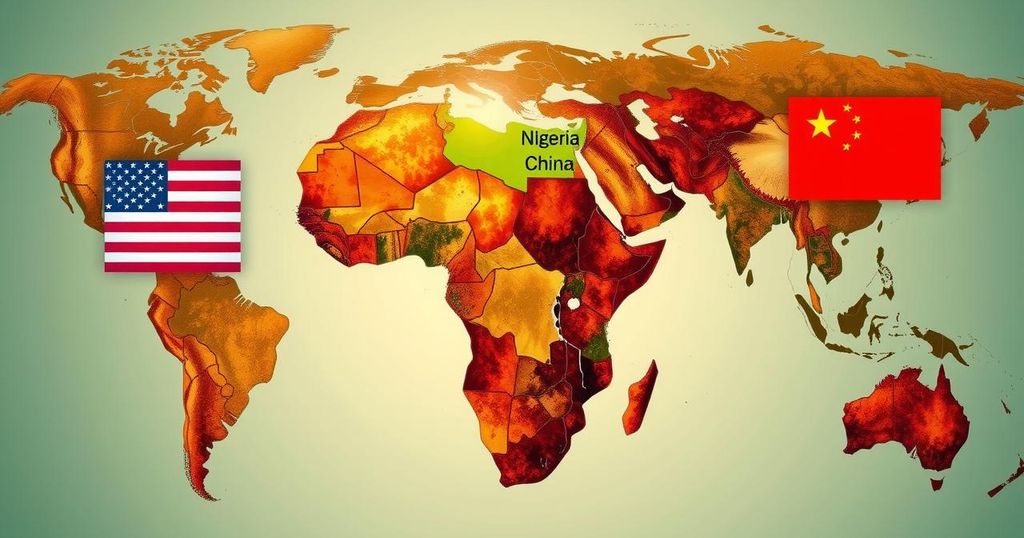Arab American voters in Michigan are increasingly supporting Donald Trump, largely due to disappointment with the Biden administration’s foreign policy concerning Israel and the ongoing conflict in the Middle East. Activists argue that the Democratic Party has taken their votes for granted, prompting a reevaluation of political loyalties among this demographic. Local leaders have begun to endorse Trump, adding to the complexity of the electoral dynamics in a key swing state as the 2024 election approaches.
In recent months, a noteworthy shift has emerged among Arab American voters in Michigan as they increasingly express support for former President Donald Trump, particularly ahead of the upcoming U.S. election. The ongoing conflict in Gaza and Lebanon has ignited a significant backlash against Vice President Kamala Harris from within the Arab community. Activist Samraa Luqman contends that the Democratic Party has long taken the Arab vote for granted, and argues that should Harris lose, the consequences would be felt most acutely by the Democratic party due to their unswerving support for Israel in the current crisis. Luqman believes that supporting Trump is more about holding the current administration accountable than an outright endorsement of the former president himself, emphasizing the lack of change in U.S. foreign policy under Biden and Harris. Despite Trump’s history of anti-Muslim rhetoric, he has reached out to Arab voters disenchanted with the Democrats, promising them a better path, albeit with little detail on actual policy changes. This newfound connection appears particularly evident in cities like Dearborn, where Trump has made significant campaign efforts, overshadowing the narrative built by his far-right allies that aim to demonize the local community. Through various campaign stops, including a recent visit to Hamtramck, the first Muslim-majority city in the United States, Trump has engaged with Arab Americans directly at their businesses and community events. Many in this electoral bloc believe their votes can significantly influence the outcome in Michigan, a critical swing state, especially if dealer with candidates who do not adequately address broader issues impacting their community, such as the current violence in the Middle East and economic concerns. Furthermore, endorsements from local leaders of Arab descent, such as Mayor Bill Bazzi and Mayor Amer Ghalib, signify the shifting political allegiances within traditionally Democratic voting blocs. While these endorsements may help fortify Trump’s ties with Arab Americans, they also stir controversy among those who criticize his administration’s track record on civil rights and foreign policy. Meanwhile, opposition to Trump’s overtures persists within the community, as dissenters point to his previous derogatory comments about Muslims and Arabs. Activists continue to advocate for accountability from Democrats, positioning their discontent with current policies as a reason to rethink their allegiance to either party in the wake of grave humanitarian crises overseas. As the 2024 election approaches, Arab American voters face a transformative moment, balancing past grievances with potential political strategies. The current dynamics suggest that their collective vote may indeed play a pivotal role in determining the election outcome—not just reflecting changing loyalties but redefining the electoral landscape in which they operate.
The article explores the notable trend of Arab American voters in Michigan gravitating towards Donald Trump in the wake of ongoing conflicts in Gaza and Lebanon. Traditionally a Democratic-leaning demographic, many Arab Americans are reconsidering their political affiliations due to dissatisfaction with the Biden administration, particularly the lack of a strong stance on Israel’s actions in the Middle East. The political landscape in Michigan, especially in cities like Dearborn and Hamtramck, provides a unique backdrop for these shifts, as local leaders and activists engage in direct political dialogue with the candidates. The situation is underscored by a collection of sentiments ranging from a desire for accountability within the Democratic Party to newly forged connections with Trump despite a complicated history. This potential realignment is significant as Michigan is a key swing state that could determine the outcome of the election.
The growing support for Donald Trump among Arab American voters in Michigan indicates a significant political realignment, driven by community leaders and activists disillusioned with the Democratic Party’s handling of critical foreign policy issues, particularly in relation to Israel. As they seek new political avenues to address their concerns, this electorate is poised to influence the 2024 election substantially. Whether this shift can lead to meaningful change in policy or remains a transient response to specific grievances will be crucial to observe as the election date approaches.
Original Source: www.aljazeera.com




